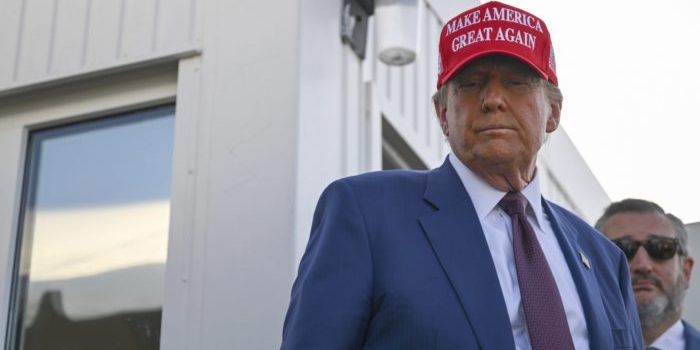(Headline USA) Federal prosecutors moved Monday to dismiss the lawfare charges against President-elect Donald Trump that accused him of plotting to overturn the 2020 election and to abandon the classified documents case against him, citing longstanding Justice Department policy that says sitting presidents cannot face criminal prosecution.
“The American People re-elected President Trump with an overwhelming mandate to Make America Great Again,” said Trump Communications Director Steven Cheung in a statement celebrating the defeat of the Biden administration’s efforts to weaponize the DOJ against a former top political rival.
“Today’s decision by the DOJ ends the unconstitutional federal cases against President Trump, and is a major victory for the rule of law,” Cheung continued. “The American People and President Trump want an immediate end to the political weaponization of our justice system and we look forward to uniting our country.”
The decision by special counsel Jack Smith amounted to a predictable but nonetheless stunning conclusion to criminal cases that had been seen as the most perilous of the multiple legal threats Trump has faced.
It reflects the practical consequences of Trump’s victory, ensuring he enters office free from scrutiny.
Smith, on the other hand, now faces the prospect of being investigated by the incoming Trump DOJ over his brazen misapplication of his prosecutorial powers in several instances, as outlined by investigative journalist Julie Kelly, who has painstakingly documented much of the DOJ’s abuse in cases pertaining to Trump and Jan. 6 political dissidents.
I encourage @ChuckGrassley to immediately send a letter to Jack Smith warning him not to leave the country. I also detail some areas of investigation for the biggest loser in DOJ history. https://t.co/XE1Rtp7otW
— Julie Kelly 🇺🇸 (@julie_kelly2) November 25, 2024
Trump has cast both cases as politically motivated, and had vowed to fire Smith as soon as he takes office in January.
Smith’s team emphasized that the move to abandon the prosecutions, in federal courts in Washington and Florida, was not a reflection of their view on the merits of the cases but rather a reflection of their commitment to longstanding department policy.
“That prohibition is categorical and does not turn on the gravity of the crimes charged, the strength of the Government’s proof, or the merits of the prosecution, which the Government stands fully behind,” the prosecutors claimed in Monday’s court filing.
The American people, however, begged to differ in re-electing Trump not only despite the unrelenting prosecution, but in many cases because of it.
The decision was expected after Smith’s team began assessing how to wind down both the 2020 election interference case and the separate classified documents case in the wake of Trump’s victory over Vice President Kamala Harris.
The 2020 election case brought last year was once seen as one of the most serious legal threats facing the Republican as he vied to reclaim the White House. But it quickly stalled due to Smith’s signature overreach in attempting to prosecute Trump over actions for which he was protected under longstanding presidential immunity grounds.
Following Smith’s unprecedented attempt to challenge the presidential immunity precedent—which previously kept presidents such as George W. Bush and Barack Obama from being prosecuted for war crimes—the U.S. Supreme Court in July affirmed that former presidents have broad immunity from prosecution.
It sent the case back to U.S. District Judge Tanya Chutkan to determine which allegations in the indictment, if any, could proceed to trial while rebuking Chutkan for having failed to do so previously in her haste to bring the case to trial before the election.
Smith’s team again violated prosecutorial norms in October, when it filed a lengthy brief revising the case it planned to press against Trump in light of the immunity ruling.
It accused Trump of “resorting to crimes” in his effort to challenge the highly dubious election outcome.
Smith and Chutkan colluded to jump ahead in the process, bypassing what would normally have been the Trump defense team’s opportunity to file a brief due to their desperate effort to leverage the case as a political bludgeon against Trump, selectively leaking parts of the heavily redacted brief while preventing Trump from commenting on it due to a gag order.
Adapted from reporting by the Associated Press

